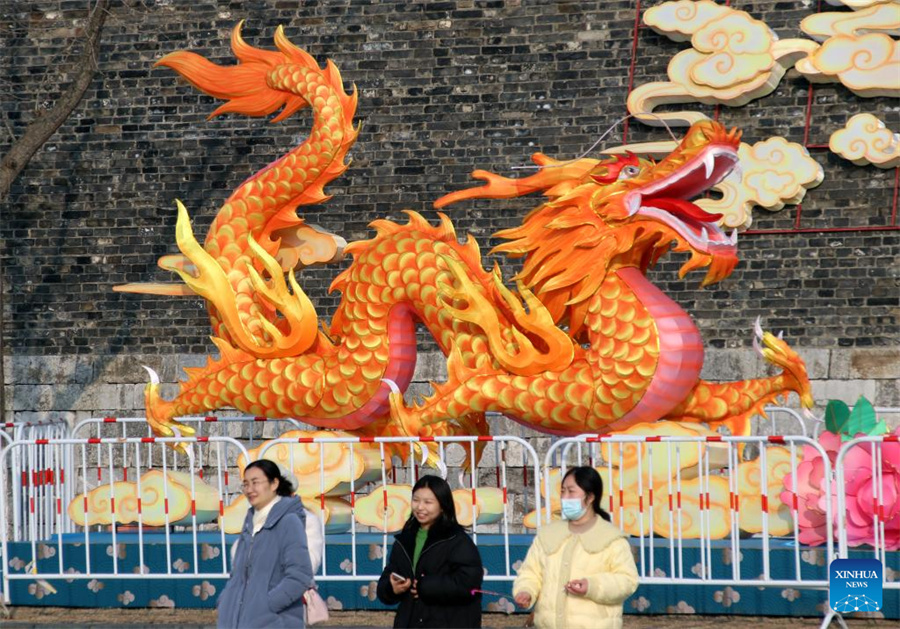龙年到 聊聊龙年成语 (III) Idioms for the Year of the Dragon (III)
The World of Chinese 2024-03-06 09:00


Kick off the Year of the Dragon (龙年, lóng nián) with some useful Chinese "chengyu (成语, chéng yǔ)" about this mythical creature
The Year of the Dragon has always been one of China's favorite years. As one of the country's most beloved zodiac animals (十二生肖, shí èr shēng xiào), dragons have been seen as symbols of the nation since ancient times. Chinese people often even refer to themselves as "descendants of dragons (龙的传人, lóng de chuán rén)."
In traditional Chinese culture, dragons are powerful divine beasts (神兽, shén shòu), symbolizing authority, nobility, and good fortune. Many believe being born in the year of the dragon will bring them good luck. The belief is pervasive: China often experiences higher birth rates (出生率, chū shēng lǜ) in dragon years.
Over centuries, dragon (龙 lóng) stories have formed dozens of chengyu, Chinese idioms normally consisting of four characters (四字成语, sì zì chéng yǔ). Most of these idioms including dragons are positive (正面的, zhèng miàn de), often describing a person's outstanding appearance, status, or abilities.
For example, a talented or powerful individual is often referred to as a "dragon among humans (人中之龙, rén zhōng zhī lóng)." The leader of an excellent team may be hailed as the "head of a group of dragons (群龙之首, qún lóng zhī shǒu)," and parents' great ambitions for their children are encapsulated in the term "expect the child to become a dragon (望子成龙, wàng zǐ chéng lóng)." Here are a few more dragon idioms and their fascinating stories.
鱼跃龙门 Carp leaps over the Dragon Gate
The Records of Sanqin (《三秦记》sān qín jì), a historical and geographical text written in the Han dynasty, includes a traditional folk tale about carp turning into dragons. It describes a place called the Dragon Gate in the Yellow River, where the flowing river water formed a waterfall (瀑布, pù bù). Every spring, yellow carp in the river swim upstream against the current (水流, shuǐ liú), and those that manage to leap over this waterfall transform into dragons.
This legend symbolizes the spirit of braving difficulties and striving for success. In ancient times, it was commonly used as a metaphor for success and social advancement such as passing imperial examinations (科举考试, kē jǔ kǎo shì) or getting a promotion.
He got promoted to a managerial role. It's truly like a carp leaping over the Dragon Gate.
Tā shēng zhí chéng le jīng lǐ, zhēn de shì yú yuè lóng mén.
他升职成了经理,真的是鱼跃龙门。
来源:The World of Chinese
编辑:万月英

















 英语点津微信
英语点津微信 双语小程序
双语小程序